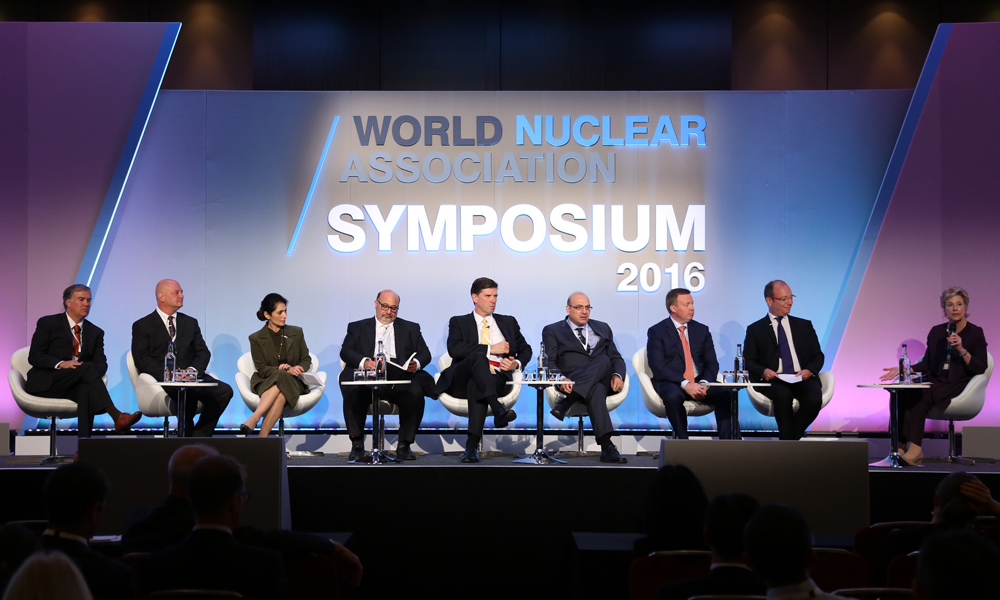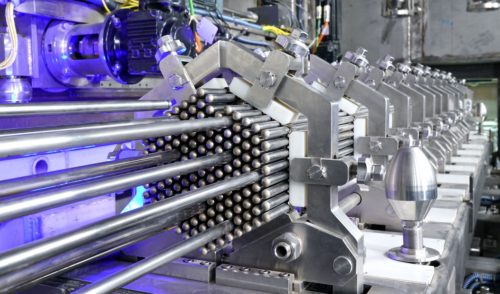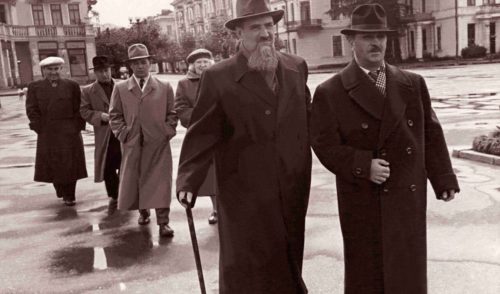
Rosatom at WNA Symposium
back to contentsKirill Komarov
Rosatom’s First Deputy CEO for Corporate Development and International Business
– The nuclear industry has been global and will never cease to be global. I see a great potential for partnership in what is now done by Russia, France or the USA. Nuclear power is an international business. It is very important to continue building nuclear power plants in the United States and Eastern Europe. It is no less important to keep in touch on the corporate level as we do with Areva and GE. We are open for alliances with other companies, British businesses included.
Helmut Engelbrecht, CEO of Urenco Group and Chairman of the World Nuclear Association, set the tone for the business program of the Symposium. He said that public attitude had experienced a dramatic shift over the last year, and nuclear energy was perceived as a major power source of the future. Last year, the Association presented its vision of tomorrow’s nuclear energy industry. The new program was based on peaceful co-existence of eco-friendly energy sources, with priority given to nuclear energy. According to Helmut Engelbrecht, the program drew much interest at the highest level, notably at the COP21 conference held in November 2015 in Paris. The program is planned to increase the nuclear power share up to 25% of the global energy mix by 2050.
When Agneta Rising, WNA Director General, took the floor, she said that the target was to commission 10 gigawatts of new nuclear capacity every year to combat climate changes. It has been exceeded this year, with the total new capacity reaching 11.3 GW globally. “This is not a limit for the industry,” Agneta Rising assured the audience. “The industry has everything – companies, technologies, and a market – to perform much better. Everyone is sure we can do it [reach a 25% nuclear share of total power generation].”
This syncs with the OECD Nuclear Power Agency recommendations that nuclear generation should grow by 12 GW annually to take the lead by 2050, William Magwood, Director General of OECD NEA, remarked in his address.
Future belongs to innovations
Much attention at the Symposium was paid to Rosatom’s progress in the construction of nuclear power facilities, notably the world’s first Generation 3+ reactor at Novovoronezh. More Gen 3+ reactors are about to be commissioned, among them AP-1000 at China’s Sanmen Nuclear Power Station (2017), EPR-1600 at Olkiluoto, Finland (2017), and Hualong at China’s Fuqin (2020). When asked by the moderator about specifics of the power unit at Novovoronezh, Alexander Lokshin, Rosatom’s First Deputy CEO for Operations Management, said that the main thing was a combination of active and passive safety systems notably reducing the human factor. The passive heat removal system ensures a lasting release of residual core heat into the atmosphere in case the plant is cut off from power supply. Additionally, the reactor is fitted out with a double containment and a core catcher, thus ruling out any radioactive emissions. Projects based on VVER-1200 reactors are now underway in Russia, Belarus, Turkey, Finland, Egypt, Hungary, Bangladesh and other countries, all at different stages. The first power unit of this type commissioned at Novovoronezh provides a reference case for all other projects of the same design. “It gives our prospective customers a chance to virtually touch the product. Our serial production strategy enables them to see the reactor in different phases of completion either in Russia or on our international construction sites,” Alexander Lokshin said.
He added that Russia was an undisputed leader in fast reactors. “For the most part, today’s civil nuclear industry utilizes thermal neutron reactors. We are convinced though that fast neutron reactors will prevail in power generation over time” Mr. Lokshin concluded.
Reference projects are a key to success
Another centerpiece of the symposium was its plenary session focused on economic and political aspects of the industry’s further development. Attracting investors in nuclear has become a buzzword in today’s adverse economic conditions. According to Kirill Komarov, Rosatom’s First Deputy CEO for Corporate Development and International Business, a nuclear construction project has more chances to win favor with investors if there are precedents. “Construction projects with no precedents are less trusted, but if you have another project that has already been proven successful and can serve as a reference, you have much more chances to win investors,” said Mr. Komarov. According to him, political will is crucial for nuclear projects to be launched. “Russia and France, for instance, have a political will to build nuclear stations,” he said. Komarov stressed that nuclear vendor countries should not forget about developing their nuclear power industries domestically. Otherwise, they run a risk of losing their competences and ability to prove their competitiveness and efficiency on the global market.




